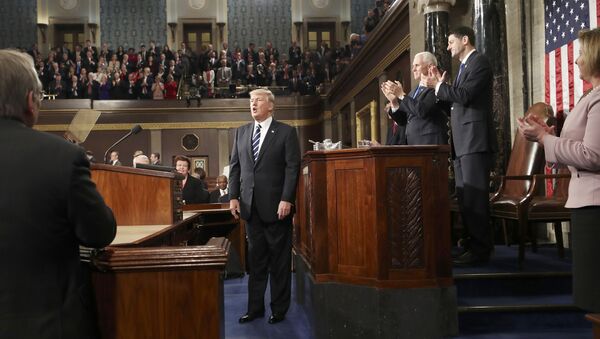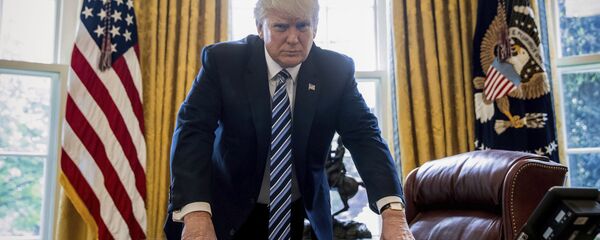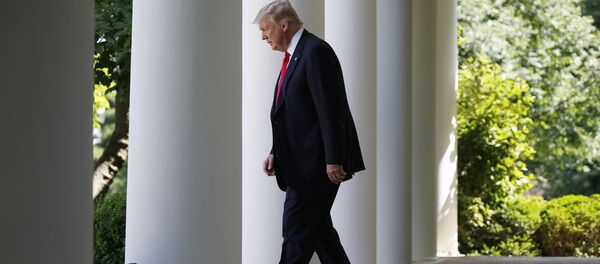The new legislation punishes Moscow for its alleged meddling in the 2016 US presidential election, its alleged involvement in the situation in Ukraine, as well as its military activities in Syria.
Congress and the White House were at odds over the bill for over two months during which the president managed to negotiate some minor concessions. However, the fact that Trump finally signed the new sanctions into law looks like his "serious political defeat," RIA Novosti contributor and political commentator Rostislav Ishchenko wrote in an op-ed.
On Wednesday, Trump also issued a statement in which he described the newly signed law as "seriously flawed," particularly because "it encroaches on the executive branch’s authority to negotiate."
According to the president, the bill contradicts the US Constitution by limiting the president’s flexibility in dealing with foreign affairs.
According to the Constitution and political traditions, the president of the United States can impose or remove sanctions, as well make international agreements without congressional ratification. Moreover, the president can suspend already ratified international agreements.
"As we can see, the US president can sometimes combine executive and legislative functions, which gives him room to decide on important international issues without congressional involvement," the author noted.
Moreover, the American political tradition presumes that only the president can overturn a presidential executive order. Sanctions against Russia were imposed at Barack Obama’s executive order. However, with the new bill signed into law, Trump cannot remove or renegotiate the sanctions in a unilateral move.
According to Ishchenko, there is only one simple reason why Trump did not veto the sanctions bill.
"Both congressional chambers now have a bipartisan majority capable of overriding the presidential veto. Thus, Trump’s attempt to block the bill would make no sense and could deepen the tensions between the White House and Congress and among the legislative factions as well. If Trump had tried to veto the bill he would also bog down in a long legal procedure. Nevertheless, there is a consensus in Congress. If Trump had acted against it he would risk finding himself against the whole nation, on the way leading to his impeachment," Ishchenko wrote.
Trump finally signed the bill, but his statement proves he is shedding all responsibility for its consequences. Moreover, according to Ishchenko, Trump will now have a scope for maneuvering. In particular, Trump may be able to pressure Washington’s allies in Europe but as a president bound hand and foot by Congress.
"Of course, Trump cannot remove the sanctions, but Moscow didn’t expect that it was possible. However, Trump still has the constitutional right to negotiate with Russia on Syria, Ukraine and other external affairs without congressional approval. At the same time, he could use Congress as an excuse while bargaining with Moscow," the article read.
Moreover, according to Ishchenko, Trump could also blame Congress for the possible future difficulties in Washington’s foreign policy, citing as a reason the congressional encroachment in his powers.
"If he plays his political game accurately he could not only make Congress to account for the US failures in the Middle East and Europe but also change the current situation in such a manner so that Congress itself will raise a concern over the constitutionality of the sanctions bill," the article concluded.





